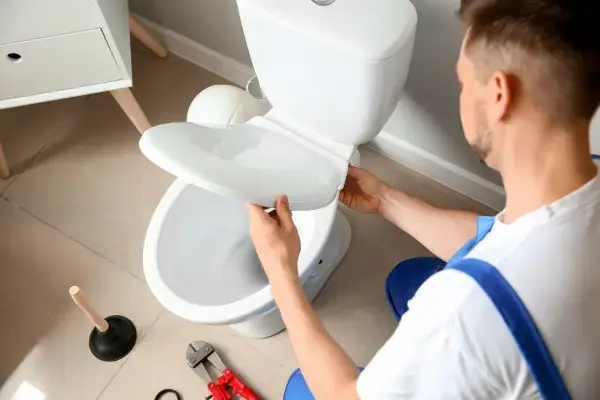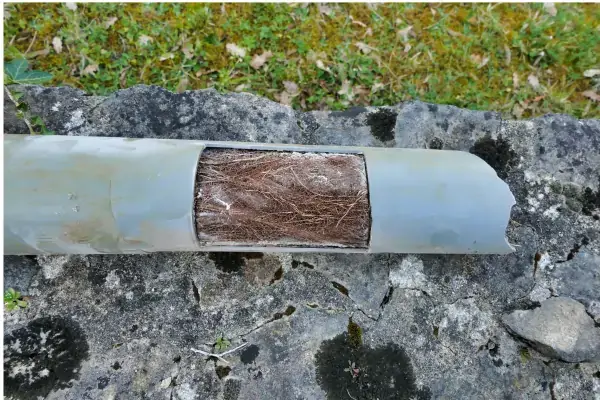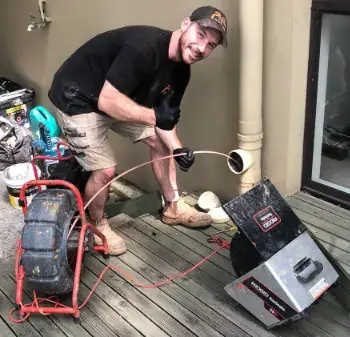How Do I Know if My Sewer Line is Blocked?
A blocked Sewer Line is a blockage or clog in the main drain. When this occurs it can affect multiple drains in a property at once. Whether the problem is at home or the workplace it can be the cause of inconvenience, frustration and disruption to your daily routines.
Signs You Have a Blocked Sewer Line
A blocked sewer line can cause serious plumbing issues. And the longer you leave the problem unresolved the more serious it will become. If your toilet, shower, and kitchen sink are all backing up at the same time the main sewer line is likely clogged. Common signs include:
- Multiple Drain Backups - if toilets, sinks, bathtubs, showers are backing up at the same time, it’s a strong sign of a main sewer line blockage.
- Gurgling Sounds - unusual noises such as gurgling coming from your toilet, bathtub, or sink when you flush or run water could indicate trapped air caused by a blockage.
- Slow Draining Water - water draining slowly from sinks, tubs, or showers despite attempts to clear them may involve a sewer line blockage.
- Pest Problems - a damaged or clogged sewer line can attract rodents and insects.
- Sewage Smells - foul odours coming from drains, toilets, or your yard could indicate sewage is backing up.
- Toilet Flushing Problems - flushing one toilet causes another drain like a tub or sink to back up, suggests a sewer line blockage.

What to Do If You Suspect a Sewer Line Blockage
Avoid using water to prevent further backup, check your sewer cleanout which is a plumbing access point allowing for easy inspection, maintenance and cleaning of the sewer line. There are two types of cleanouts one of which is located outside your home and the other may be located closer to a specific area such as bathrooms or kitchen. You might notice visible obstructions, but if not, you will need a licensed and insured plumber to inspect the drain with a camera and clear the blockage.
What Causes a Blocked Sewer Line
There are a few reasons that a sewer line becomes blocked or clogged. Regardless of the reason the problem will need to be fixed promptly not only for your comfort and convenience but also as blocked sewer lines can pose health risks to you and the environment. Culprits include:
- Invasive plumbing issues such as corrosion or rust in older pipes
- Invasion of Tree Roots
- A buildup of sediment
- Debris and foreign objects entering the system
- Grease and fat build-up clogging pipes
- Collapsed or broken pipes due to aging
- Improper installation and pipe connections

Professional Sewer Line Unblocking Service
Some blockages can be easily fixed using a simple household plunger or drain cleaner. If these steps do not successfully clear the blockage you will need the help of a drainage plumber. With their skills and expertise in sewer lines, drains and pipes they can diagnose what the problem is and use the most suitable approach to rectify the problem. Typically in instances of very stubborn blockages a sewer camera inspection will be required. When you reach out to a plumber for assistance here is what they typically will do
Sewer Line Inspection
- By using a sewer CCTV camera to inspect the inside of your sewer line the plumber can quickly identify the exact location and cause of the blockage, from tree roots, and debris to broken pipes. The most appropriate repair solution can then be applied.
Clearing the Blockage
- Once the culprit has been identified, Hydro-jetting which is high-pressure water will be used to clear debris and blockages. If the blockage is extremely fixed a long auger (snake) will be used to help break up and remove blockages. This method is referred to as snaking.
Repair or Replacement
- If the sewer line is damaged or collapsed, a repair or replacement of the damaged pipe section may be necessary. This can sometimes be done through trenchless methods, meaning the ground will not need to be extensively dug up.
Preventive Measures
- To ensure sewer lines and pipes remain free-flowing a plumber may offer tree root treatments or advise on ways to avoid future blockages. Scheduling regular specialised maintenance is a proactive measure to help keep your sewer line in good condition and function.

How to Keep Sewer Lines Clear of Blockages
There are a few simple steps that homeowners and businesses can do to help avoid sewer line blockages. By following these you can substancially reduce blockages for occurring.
- For those on septic use septic-safe cleaners and septic additives
- If you have a garbage disposal avoid putting inappropriate items in it
- Be careful of what you put into your drains, such as oil, grease, and food scraps.
- Use specific enzyme cleaners
- Don't flush wipes or sanitary items in your toilet
Get professional advice from a specialist plumber to avoid minor issues escalating into major costly emergencies
Resources: 3 Simple Ways to Unclog a Main Sewer Line Without a Snake